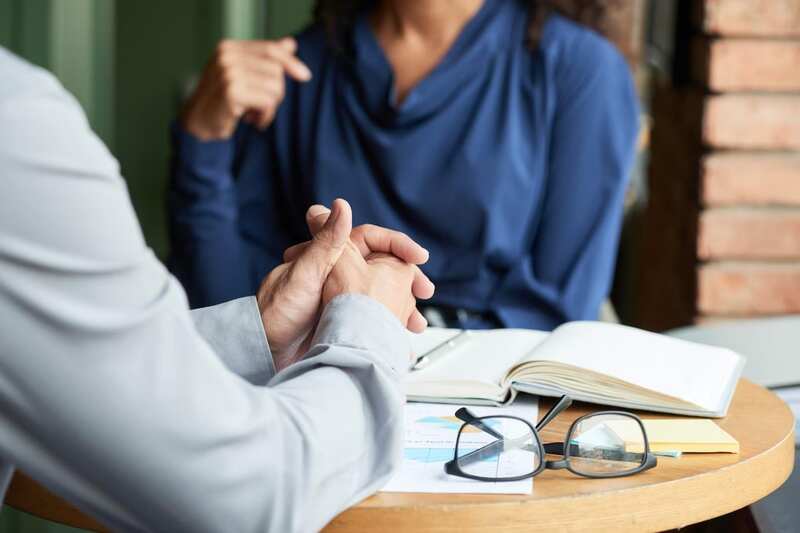Minority individuals face a lot of additional issues when they are trying to pursue justice within a personal injury case and considering a personal injury attorney. Understanding the unique challenges will help foster an equitable legal system and it is crucial to become knowledgeable in order to support change.
Some of the challenges that minorities deal with in the personal injury field include socioeconomic disparities and cultural barriers. Some other challenges may include implicit biases and even limited resources. The challenges make it difficult to fully and functionally navigate the intricacies of the legal processes.
By fostering cultural competence among personal injury attorneys, bolstering support through organizations, and improving legal education to those interested in pursuing a case, then we can strive to create a legal environment where minorities feel welcomed, accepted, and included.
Challenges Faced by Minority Individuals

Finding your way through a legal case is daunting, overwhelming, and filled with plenty of unforeseeable challenges. For minorities, the challenges are even more pronounced.
Some of the challenges minorities face include:
- Socioeconomic Disparities: Historically, minorities have faced socioeconomic disparities in healthcare, education, and economic opportunities. Due to disparity in wages, it becomes more difficult for minorities to afford legal representation.
- Cultural and Language Barriers: Many minorities do not speak English and many attorneys do not speak another language. The first challenge for many minorities is to find somebody who speaks their native language. It becomes increasingly stressful when the language is not a prominent language in their community.
- Implicit Bias and Discrimination: Unfortunately, everybody has to deal with biases and discrimination – especially minorities. Minority individuals may face extreme prejudice from jurors, law enforcement, legal professionals, and judges. It is sometimes difficult for a minority to receive equal and fair treatment in the legal system.
- Lack of Resources: With the socioeconomic disparities there comes a lack of education about the legal system. It might simply be a lack of awareness about their rights, available legal remedies, and steps to take after an injury – they might not even believe they have a case.
- Distrust: Quite honestly, minorities may not trust the legal system. They may have had bad encounters with legal professionals, or have witnessed their family and friends have poor altercations with officers, lawyers, or the legal process. Due to this distrust, they don’t even want to try to pursue a personal injury case.
Due to the layered challenges faced by minorities when pursuing justice in personal injury cases, there is a genuine concern that they will not receive fair compensation for their damages and their loss. It is incredibly disheartening but the potential of inadequate legal representation is high for minorities due to misunderstanding and unequal treatment.
Navigating the Legal Process
1. Choosing Legal Representation
Finding an attorney who is culturally attuned and understands the intricacies and obstacles faced by minorities can be overwhelming and difficult but it can be done and it will play a profound role on the overall experience of the case.
Such legal representation transcends mere legal knowledge, it is having a deep and powerful understanding of the social, cultural and historical context that can significantly impact the overall outcome of the client’s case.
An empathetic attorney can help cultivate trust which will enable more fluid and open communication which will allow for a better understanding of the client’s concerns, needs and hesitations with regard to their personal injury case.
How to Choose the Best Legal Representation
- Google It: First, you will want to Google “personal injury attorneys in X” or “personal injury attorneys near me” This will provide you with a substantial list of the most highly regarded attorneys in your community. You can even get more specific and say, “Spanish speaking attorneys near me.”
- Research: Once you have the list of attorneys you can look at reviews – look at both the good and the bad reviews (you might notice a bad one that is quite alarming). Which ones speak your language?
- Narrow It: After researching some of the top people in Google you can then begin to narrow down your list. This is the part where it goes beyond legal knowledge.
- Consultations: Most attorneys provide consultations. During your consultation with your prospective attorney, you should ask them questions to see if their beliefs align with yours.
- Pick the Best: After you have done your research and met with the attorneys then you can choose the one that you believe will treat you with dignity, respect and has a vast knowledge of the legal system.
2. Understanding Legal Rights
Fundamental legal rights are universal principles and apply to all individuals regardless of background, ethnicity, cultural preference, or gender. Everybody deserves equality and justice.
It is time to stop listening to misconceptions about minorities. It is essential to debunk these myths that might discourage minorities from pursuing claims within the legal system. Minorities believe that they will not be taken seriously, or will not be treated fairly, so then they just don’t try to seek legal counsel. One might also try to convince themselves that their case isn’t large enough to need counsel.
By collaborating with a professional non-bias legal counsel you will have the opportunity to dispel myths and it will empower minorities to pursue their claims with confidence and trust in the legal process.
3. Documentation and Evidence
It is essential to collect thorough and complete documentation and evidence if you are looking to build a strong personal injury claim. Some of the evidence that you should collect include proof of damages, scene photos, medical records, bills, receipts and any witness statements that you received.
4. Overcoming Language Barriers
Navigating the legal system is quite overwhelming – especially if English isn’t your first language. You might have to communicate with other people at the scene, medical staff, insurance agencies, auto repair shops, and the list goes on.
The best thing you can do is be honest with the person you are speaking with about your limited communication skills in English. They might have a translator on staff that can help you maneuver through their system.
If you can choose a specific professional along the way that speaks your language then that would be ideal. You need to make sure you understand every aspect of the legal process. You can also ask a loved one who speaks English if they wouldn’t mind being part of your case.
5. Addressing Cultural Biases
Cultural biases can significantly shape how personal injury claims are perceived and judged. Many people have beliefs about different cultures, races, genders, or religions that inhibit them from providing fair and just experiences. Cultural norms and stigma might convince individuals not to pursue claims.
Yes, biases are part of our everyday lives and they seep into the legal system. However, recognizing and addressing these biases through cultural competence training, awareness campaigns, and fostering an inclusive legal environment can lead to personal injury claims being evaluated fairly.
Empowering Minority Individuals to Pursue Justice Effectively

Cultural biases significantly influence the perception of personal injury claims which greatly affects the way that the case is judged. Within the legal system, there are stereotypes and a lot of distrust due to historical injustices. Minorities have to deal with language barriers and miscommunication while they try to navigate their way through a personal injury claim.
Minorities suffer from a lack of resources and socioeconomic disparities that further the difficulties and challenges of a personal injury claim.
It is incredibly important to foster an inclusive legal environment that evaluates the claims themselves and not on cultural factors. Addressing cultural biases is pivotal in creating a fair justice and legal system.
Empowering minorities to overcome obstacles and pursue justice effectively is essential. With the right knowledge, support and a non-bias personal injury attorney, minorities can find a way to navigate the intricacies of the legal systems with extreme optimism and confidence.
Author Bio:
Erika Garnes is a seasoned legal professional at Abogados De Accidentes De Carro Y Lesiones En Miami. With a deep passion for advocating on behalf of accident victims, Erika brings extensive expertise in personal injury law and a relentless commitment to securing justice and fair compensation for her clients. Her profound understanding of the complexities of car accident cases, coupled with her empathetic approach, makes her a trusted ally for those navigating the aftermath of accidents and injuries.


